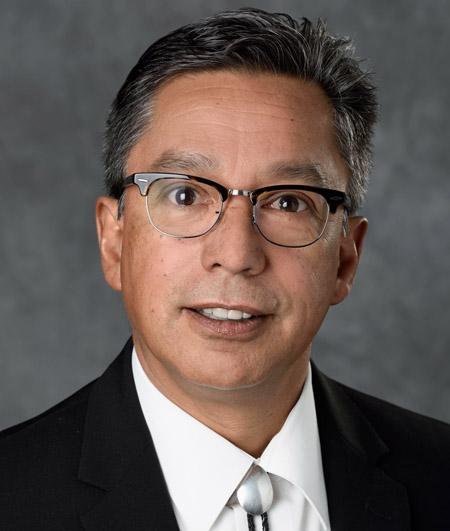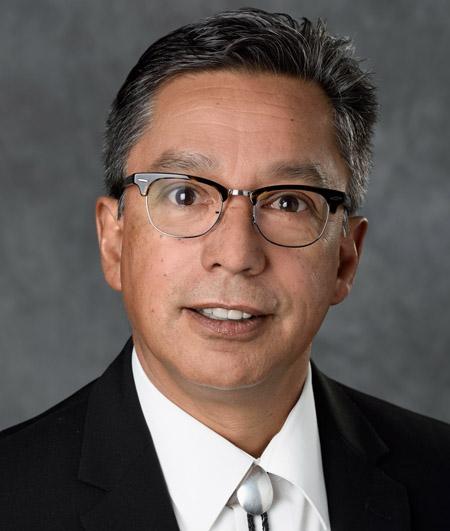
Credit: UC San Diego Health
The National Institute on Aging (NIA) has awarded scientists at University of California San Diego School of Medicine and San Diego State University (SDSU) with a five-year, $4 million grant to boost the number of Latino and other underrepresented minority researchers studying Alzheimer's disease (AD) and related dementias afflicting seniors of Latino origins, a demographic historically overlooked.
More than 5 million Americans are currently diagnosed with AD, a number expected to more than double by 2060 without prevention or cure, according to projections by the Centers for Disease Control and Prevention.
Latinos comprise the largest ethnic-racial minority in the United States; by 2050, they are expected to encompass nearly one-third of the total population. In California and Texas, Latinos already represent almost 40 percent of residents, so it's not surprising that the number of Latinos in the U.S. living with AD and related dementias is both currently substantial and projected to grow significantly — to approximately 3.2 million by 2060.
And yet research investigating the effects and impact of AD within this demographic has historically been minimal. "Evidence shows this group is getting left behind in Alzheimer's research and treatment, for many reasons," said Hector González, PhD, associate professor of neurosciences at UC San Diego School of Medicine. "We need to address this disparity now, before it becomes impossible to keep up with."
Disparities in AD and related dementias exist even within the distinct Latino communities. For example, studies indicate that persons of Caribbean origin may have a four-fold greater risk of developing AD compared to whites and those of Mexican origin.
Reasons for this disparity, though, remain elusive, in part because new data and resources haven't been available to younger scientists wishing to spend more time on Latino-specific dementia research.
"What has been missing is a concerted effort to nurture these young researchers," González said. "We all know the gravity of the Alzheimer's epidemic, and there has been a welcome amount of attention nationally and globally with intent to find a cure and prevention. What we must add are mechanisms for reducing prevalence of Alzheimer's within the elder Latino population."
The new NIA grant will allow researchers from UC San Diego and San Diego State University to create the San Diego Resource Center for Advancing Alzheimer's Research in Minority Seniors (SDRC-ARMS).
The grant, awarded to UC San Diego, involves a joint partnership between the Department of Medicine, Division of Geriatrics and Gerontology and the Department of Neurosciences, all part of the UC San Diego School of Medicine, with San Diego State University's Graduate School of Public Health and Department of Psychology.
The primary objective is to recruit, train and mentor investigators from underrepresented backgrounds, with the specific goal of improving investigation of AD within the Latino population, from basic research to clinical treatment.
Co-principal investigators are González; Alison Moore, MD, MPH, professor in the Department of Medicine and chief of the Division of Geriatrics and Gerontology at UC San Diego School of Medicine; Paul Gilbert, PhD, professor in the SDSU Department of Psychology; and John Elder, PhD, MPH, Distinguished Professor in the SDSU School of Public Health.
SDRC-ARMS will provide mentorship, data, analytic and intellectual resources to supported researchers throughout Southern California, helping sustain their work and scientific careers with independent funding.
"We want to help emerging scholars become independent and to have productive careers," Moore said. "The long-term goal is to cure Alzheimer's. The formation of the center provides the strong support and mentorship that helps move us toward that goal."
The grant highlights the institutions respective strengths: UC San Diego's expertise in geriatrics and aging research, behavioral, sociocultural and systems biology, plus a deep understanding of the pathologies of AD and related dementias and SDSU's strengths as a research-prolific, Hispanic-serving institution with robust programs in public health and psychology.
The new center benefits, too from related ongoing research, such as the Study of Latinos-Investigation of Neurocognitive Aging project directed by González, which has found that Latino diversity is strongly related with risk for cognitive decline and dementia-related disorders.
Additional support will come from the Shiley-Marcos Alzheimer's Disease Research Center and the Alzheimer's Disease Cooperative Study, both at UC San Diego School of Medicine.
Other community organizations involved in AD research and support will also become collaborators, including the Alzheimer's Association, Alzheimer's San Diego, Glenner Alzheimer's Family Centers and Southern Caregiver Resource Center.
"It's essential that we fill critical gaps in Latino AD research while catalyzing the research careers of investigators from underrepresented groups," said Moore. "We look forward to doing this in partnership with our two institutions and our community. In the end, we expect to have a meaningful impact on Alzheimer's disease in the Latino population by fostering the success of the scientific workforce from Latino and other minority groups investigating this devastating brain disease."
###
Media Contact
Scott LaFee
[email protected]
858-249-0456
@UCSanDiego
http://www.ucsd.edu





